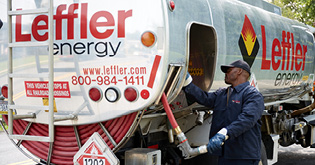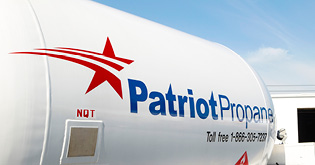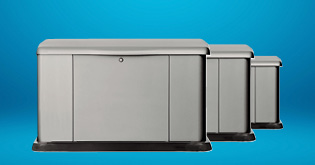- My Account:
- Sign In
- Register
- Make A Payment

What’s the difference between a boiler and a furnace?
Everyone references their heating system as a “boiler” or a “furnace.” But which one do you actually use to heat your home? The two terms are used often interchangeably for the same item, when in fact they are two very different pieces of equipment.
As one of the most vital pieces of equipment in your home, it’s important to know the difference between a boiler and a furnace.
What is a boiler and how does it work?
 A boiler heats up the water, or steam from hot
water, to very hot conditions, and use a special pump to heat radiant flooring systems, cast iron radiators, or baseboard radiators throughout your home. Due to the lack of a blower, radiantly heated air is often the most comfortable option for use
inside your home. A boiler normally runs on natural gas, propane, electricity, or wood pellets. Boiler units don’t need much maintenance other than a regular professional annual tune-up.
A boiler heats up the water, or steam from hot
water, to very hot conditions, and use a special pump to heat radiant flooring systems, cast iron radiators, or baseboard radiators throughout your home. Due to the lack of a blower, radiantly heated air is often the most comfortable option for use
inside your home. A boiler normally runs on natural gas, propane, electricity, or wood pellets. Boiler units don’t need much maintenance other than a regular professional annual tune-up.
The radiant heat from a boiler system is much more comfortable than forced air from a furnace. These units are also less noisy, more energy efficient, and create better air quality inside your home. No ductwork is required. In certain cases, the heated water from the system may also be used for things like laundry, showers, or your dishwasher. One negative to these systems is that they can be more expensive to install and if there is ever a leak the damage to your home could be quite extensive.
What is a furnace and how does it work?
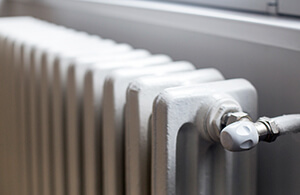 A furnace uses warm air to heat
your home and runs on natural gas, propane, or electricity. It heats up the air and pushes it through the ductwork of your home using a blower. This creates a high level of ambient temperature in the home, but the air is sometimes less comfortable
due to dryness. A furnace requires an annual inspection and you need to change air filters monthly or quarterly. Perhaps more often if you have pets.
A furnace uses warm air to heat
your home and runs on natural gas, propane, or electricity. It heats up the air and pushes it through the ductwork of your home using a blower. This creates a high level of ambient temperature in the home, but the air is sometimes less comfortable
due to dryness. A furnace requires an annual inspection and you need to change air filters monthly or quarterly. Perhaps more often if you have pets.
A furnace is usually cheaper and quicker to install than a boiler. Since furnaces don’t utilize water in the heating process, there’s also less risk of freezing during a winter power outage. But ductwork can cause drafts and the spread of dust and dander is worse for families with allergies. Natural gas furnaces also run the risk of valve leaks, which can cause serious health issues.
Important points to keep in mind about BOTH boilers and furnaces
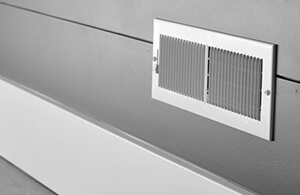 Both systems are used in conjunction with
air conditioning systems to cool your home in the summer, but certain homes might require additional ductwork or an alternative type of ductless system for this to be possible.
Both systems are used in conjunction with
air conditioning systems to cool your home in the summer, but certain homes might require additional ductwork or an alternative type of ductless system for this to be possible.
If your furnace or boiler is fueled by natural gas, there are also a few maintenance differences from their standard counterparts. To reduce the risk of carbon monoxide poisoning or natural gas leaks, it is vital to have both types of these systems checked once a year by a professional service company.
Now that you know the differences between a boiler and a furnace, you can make an informed decision about which one is best for your home heating needs.
Have more questions? You can rely on our team to help with any of your heating system installation needs. Contact us today for more information.


